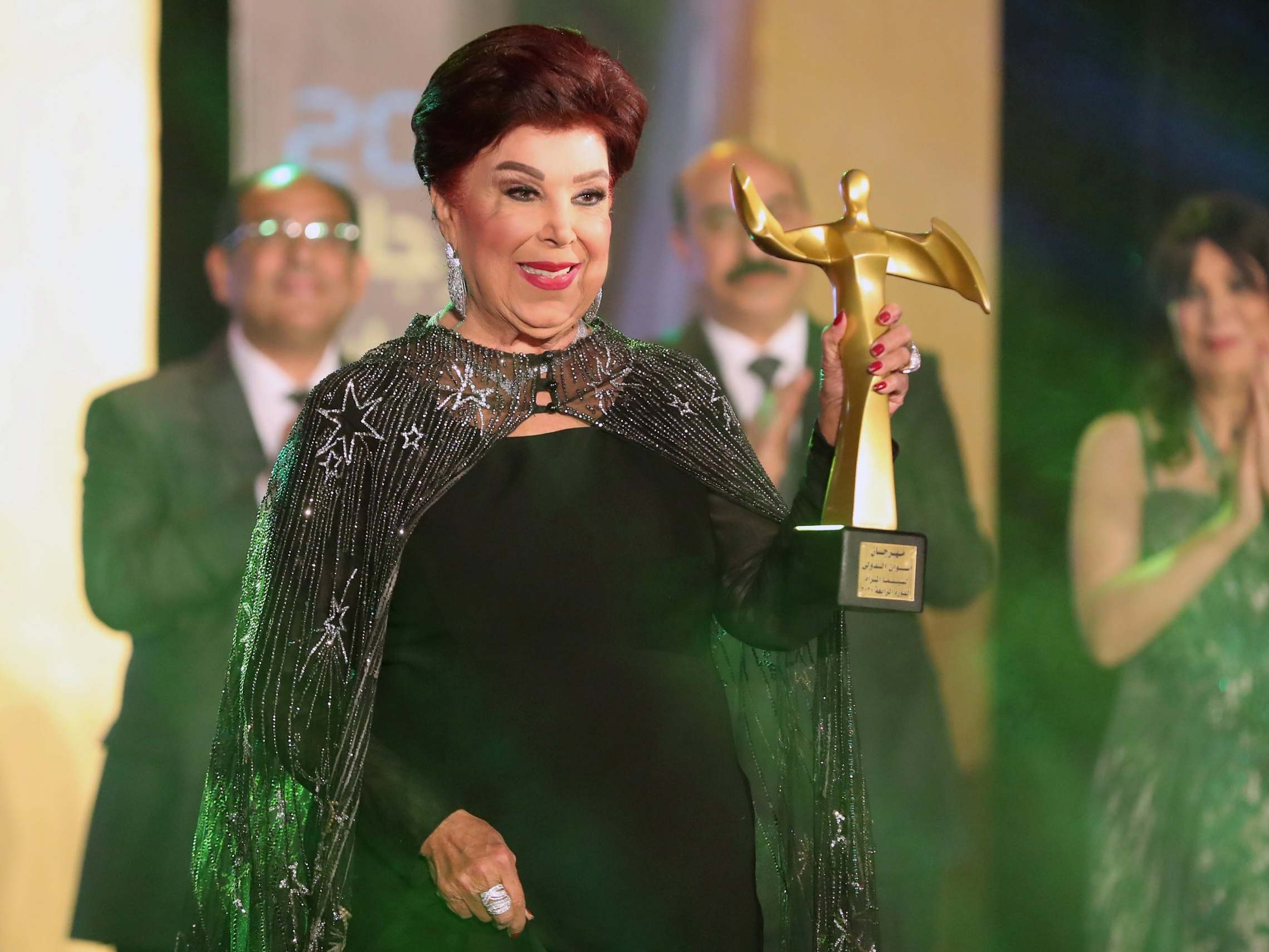Ragaa el-Gedawy: Prolific star of Egyptian cinema
In a glittering career that spanned six decades, Gedawy had roles in more than 300 plays, films and television series

Your support helps us to tell the story
From reproductive rights to climate change to Big Tech, The Independent is on the ground when the story is developing. Whether it's investigating the financials of Elon Musk's pro-Trump PAC or producing our latest documentary, 'The A Word', which shines a light on the American women fighting for reproductive rights, we know how important it is to parse out the facts from the messaging.
At such a critical moment in US history, we need reporters on the ground. Your donation allows us to keep sending journalists to speak to both sides of the story.
The Independent is trusted by Americans across the entire political spectrum. And unlike many other quality news outlets, we choose not to lock Americans out of our reporting and analysis with paywalls. We believe quality journalism should be available to everyone, paid for by those who can afford it.
Your support makes all the difference.Ragaa el-Gedawy was rarely the leading lady of the movies she starred in, but that did little to diminish her standing as one of Egypt’s most beloved actors.
In a prolific career that spanned six decades, from the golden age of Egyptian cinema in the 1950s until a few months ago, Gedawy had roles in more than 300 plays, films and television series. Her combination of grace, naturalism and comic skill, honed by a relentless work ethic, made her a cherished favourite of successive generations.
“She was the quaint actress everyone loved,” said Joseph Fahim, an Egyptian film critic. “And she was super funny. She would steal the screen from other actors with her lightness.”
Gedawy died on 5 July at an isolation hospital in her hometown, Ismailia, on the Suez Canal, after a six-week battle with Covid-19, her daughter, Amira Mokhtar, said. She was 85.
Among those mourning her death was Belgian actor Jean-Claude Van Damme, who had met her a few months earlier. “She was so full of life, cheerful and majestic,” he wrote in a tribute on Instagram that circulated widely in the Arab world, where Gedawy was recognised as a stalwart of Egypt’s once-dominant movie industry.
She was born Nagaat Aly Hassan el-Gedawy (she changed her first name when she began her acting career) on 6 September 1934, the youngest of five, at a time when Egypt was under indirect British colonial rule. Her parents – Aly el-Gedawy, a lawyer, and Noon-Fatma el-Gamil – divorced when she was young, and she and her sister were sent to Cairo to live with their aunt, Tahia Carioca, one of the most celebrated belly dancers of the age.
Gedawy was educated by Franciscan nuns at a prestigious boarding school, where she learnt English, Italian and French. To support her mother, she worked first at a public car park, then as a translator. In 1958, she entered a beauty pageant and was crowned Miss Cotton Egypt. Show business beckoned.
In 1959, she had a role in the movie The Nightingale’s Prayer, which Egypt nominated as its entry in the foreign-language category at the Academy Awards that year. She worked briefly as a model in France before returning home to star alongside Omar Sharif and Soad Hosny in the comedy A Rumour of Love (1960).
In 1970, she married Hassan Mokhtar, the goalkeeper of the Ismailia football team, who later helped coach the national team. He died in 2016. In addition to her daughter, she is survived by a granddaughter.
The second stage of Gedawy’s career started in the 1990s after she appeared in several plays with Adel Imam, one of Egypt’s most celebrated comic actors.
A flood of roles came her way, often as mothers, aristocrats or elegant businesswomen. In recent years, her work came mostly on the TV series that air during the holy month of Ramadan, when families gather around screens to gorge on their favourite shows after a meal to break the daily fast.
She had a reputation as a lively, unpretentious and hardworking actor, sometimes appearing in up to six TV series in one year.
She fell ill in late May, the day after she finished shooting her last series, Game of Oblivion, and tested positive for coronavirus. When health officials rushed her to the hospital, accusations surfaced that she was receiving preferential treatment at a time when many ordinary Egyptians were struggling to get help.
Yet for her many fans, it was the start of a worrisome vigil.
Ragaa el-Gedawy, actor, born 6 September 1934, died 5 July 2020
© The New York Times
Join our commenting forum
Join thought-provoking conversations, follow other Independent readers and see their replies
Comments